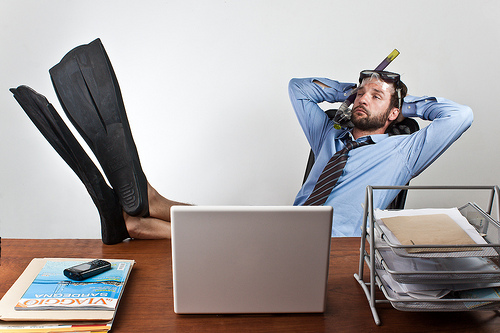Avoiding Post Vacation Syndrome

We must try to make our vacation exchange to work is as smooth as possible and focus on the positive aspects of our hard routine again. It is estimated that 30 percent of workers suffer or will suffer post-holiday syndrome, or depression, in the coming weeks to return to work.
This syndrome or depression is based on the feeling that workers have to return to the workplace after finishing the holiday period, which is characterized by lack of energy or motivation and sadness.
Post-holiday syndrome symptoms are apathy, followed by fatigue or lack of energy and concentration to perform job tasks. In more serious cases it can even cause headaches, anxiety or depression.
It is difficult to develop a profile of workers who are more likely to experience this feeling, but according to the working environment and personal characteristics they can provide.
Thus, it can be noted that the people most likely to suffer the syndrome or depression are those with lower resistance to frustration in the workplace.
You can also consider that those workers who enjoy long holidays, in addition to working in unpleasant environments, those who delude themselves by their work and those who are fighting with poor responsible, either because they do not value them enough or because It is considered incompetent to perform their functions.
As we have discussed, there are different measures to help prevent and combat this syndrome or depression, so get back to our work that much more enjoyable:
